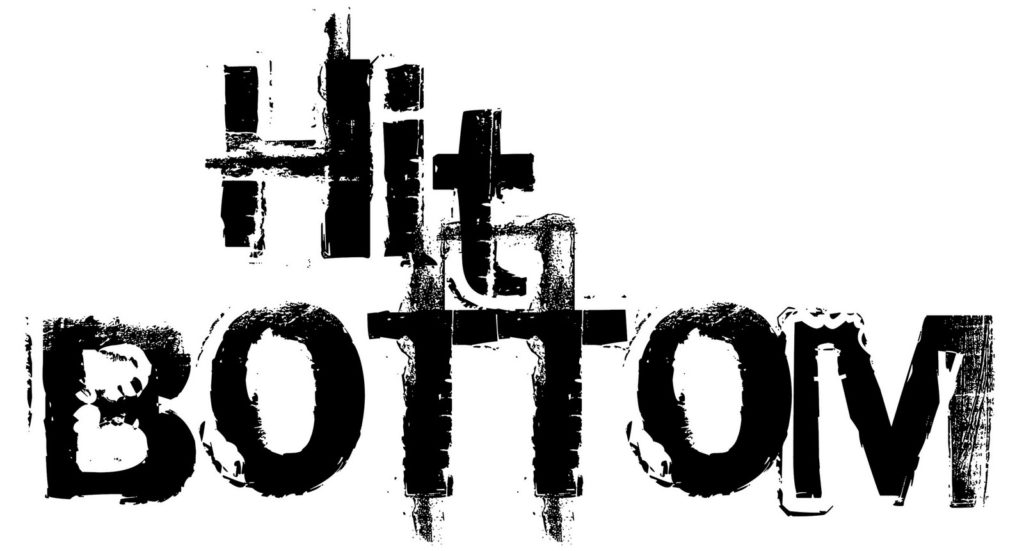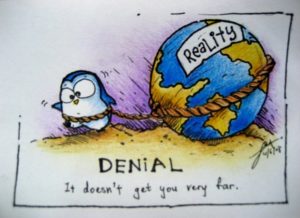The Big Book is full of gems for recovery and the appendices is no different. In “Appendix II: Spiritual Experience,”
We find that no one need have difficulty with the spirituality of the program. Willingness, honesty and open mindedness are the essentials of recovery. But these are indispensable.
Honesty
First, we must be honest with ourselves and with others. This is the key to the first step. The first step is a step out of denial, out of the darkness into the light. Denial is deception, another form of dishonesty. As previously written on the types of denial (1-7, 8-14), denial can take all kinds of forms including various forms of dishonesty (e.g., omission, minimizing, half-truths, etc.). Instead, the 12 steps require rigorous honesty; “half-measures availed nothing.”
So we must be honest with ourselves. Do we want to be well? Do we really want it? Strip everything else away, our spouses, our circumstances, the consequences, everything but you, and ask, “If I were to lose everything I hold dear, do I still want this, really?” Or, better yet, “What do I want?” I’ve sat with other men who knew in their heads that they should say they want to be with their wives, but when the facilitator or leader or counselor pressed, many simply wanted out.
The thing about honesty is…it is required at every step. It is required between steps. It is Step Zero. Can I be honest with myself? Can I be honest with others? This is something that I struggle with immensely.
Open Mindedness
Openness to change, openness to do something different, openness to consider and think differently. “Our stinkin’ thinkin’ got us here; it’s not going to get us out.” As a spiritual program, one needs to be open to the possibility that there is one who has the power to help us recovery, and he would help if he were sought. In its core, it is a humble admission that we may not know all the answers, and that there may be more for us to learn.”
When you begin attending meetings, reading recovery literature, working with a sponsor, or engaging in therapy groups or therapy sessions, you will eventually hear something or read something you do not like, question, or doubt. The Big Book even devotes an entire chapter to the Agnostics.
Regardless, a closed mind is not available to change. It is a form of insanity; “attempting to do the same thing expecting different results.” Recovery requires openness.
Another form of a closed mind is a comparative soul. Do not distance yourself with comparing yourself to others to validate yourself, or to identify yourself as unique or different. Comparing is dangerous and leads to all sorts of unhealthy thinking. Instead listen to connect or draw parallels from the speaker’s life and your own. You can go to any recovery meeting whether AA, NA, SA, OA, GA, etc., by connecting with the person sharing, we can learn something.
Willingness
Recovery also requires willingness:
- Willingness to ask for help AND to receive help.
- Willingness to do the work.
- Willingness to do something different and new.
- Willingness to trust someone else.
- Willingness to go to any length to stay clean.
- Willingness to investigate and explore spiritual options
- Willingness to change one’s understanding of God
- Willingness to be uncomfortable
- Willingness to take “stupid” suggestions
- Willingness to be transparent
- Willingness to be authentic
- Willingness to stay around people
- Willingness to change one’s routines
- etc…
Willingness is not merely intent or wishful thinking. Willingness identifies itself through action. The things I am willing to do, I typically do. The things I am not willing to do, I either blatantly do not do them OR I passively ignore them. While some of us may have other mental excuses here, the root is similar.
It may be better to use a more modern word. PASSION. As John Piper and Louie Giglio defines it,
Passion is the degree of difficulty we are willing to endure to achieve the goal.
What is your passion? How does your willingness reveal your passion?





